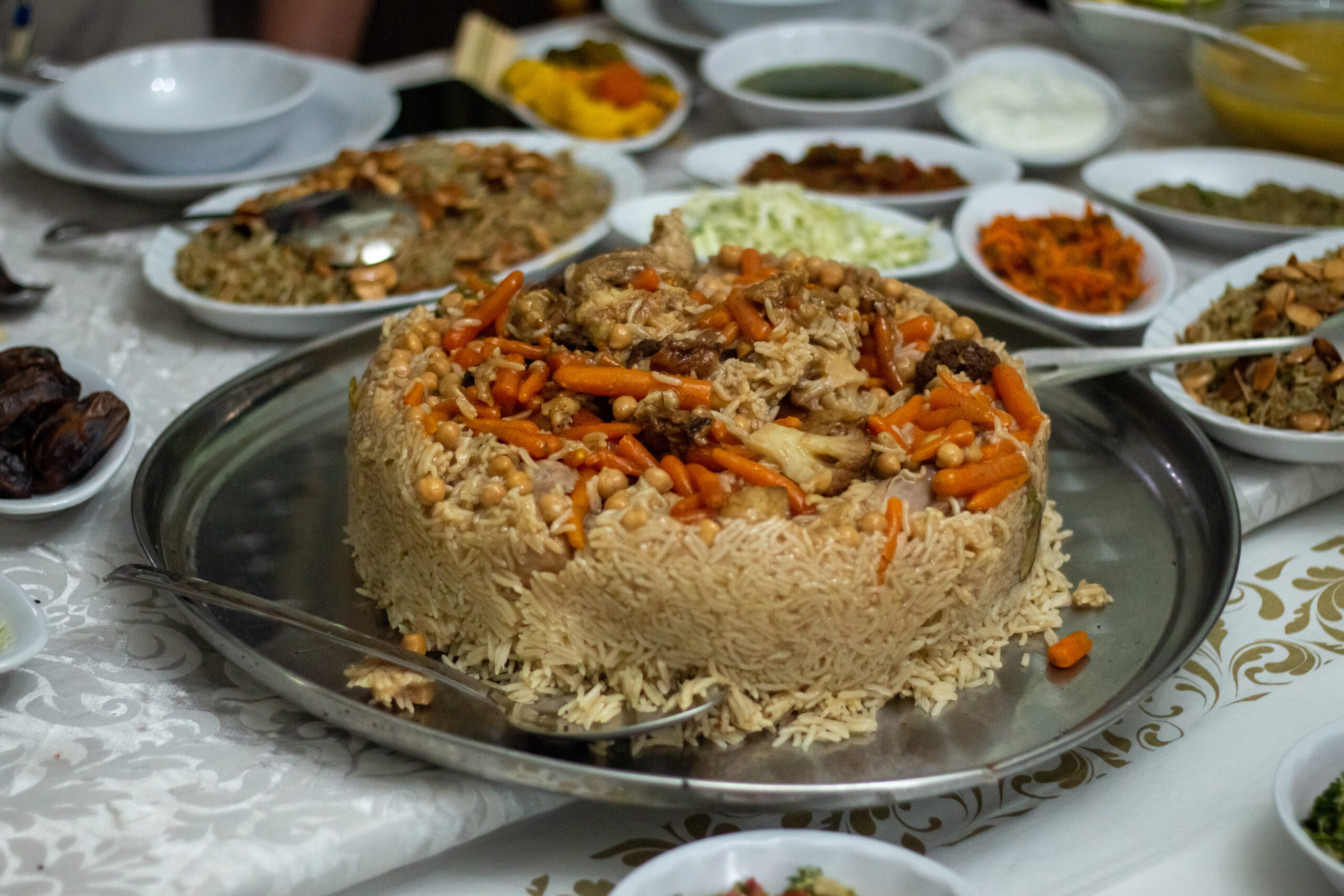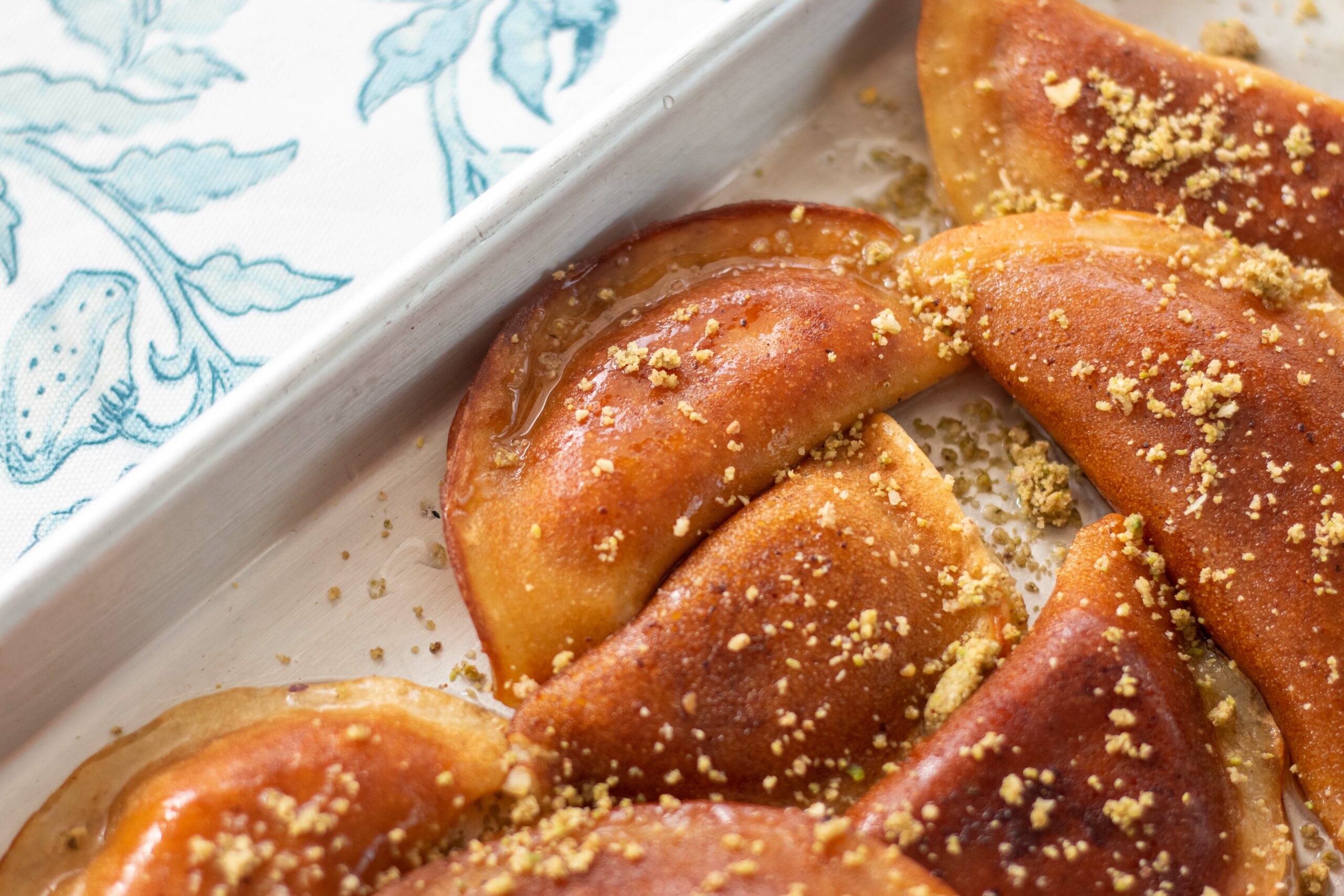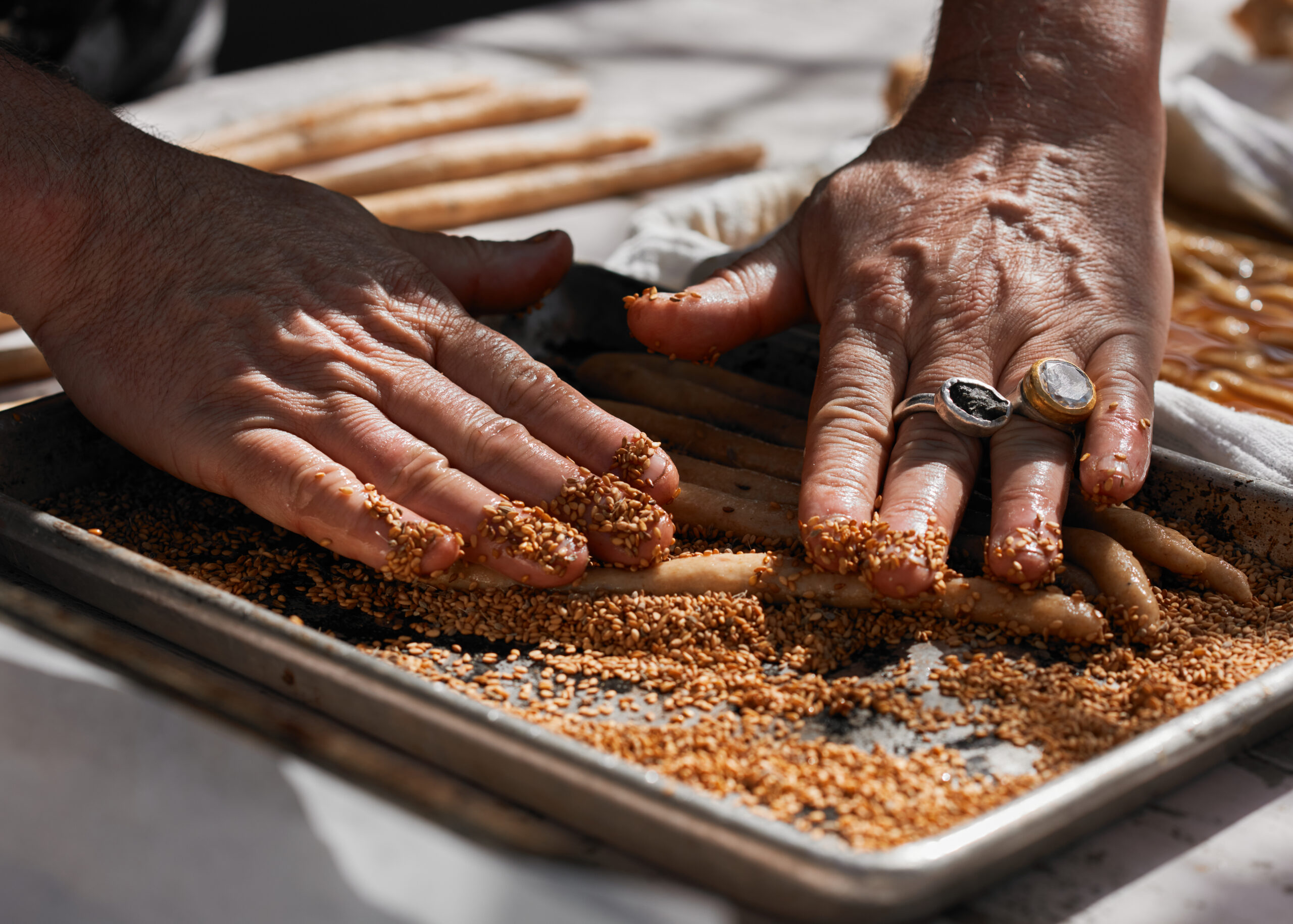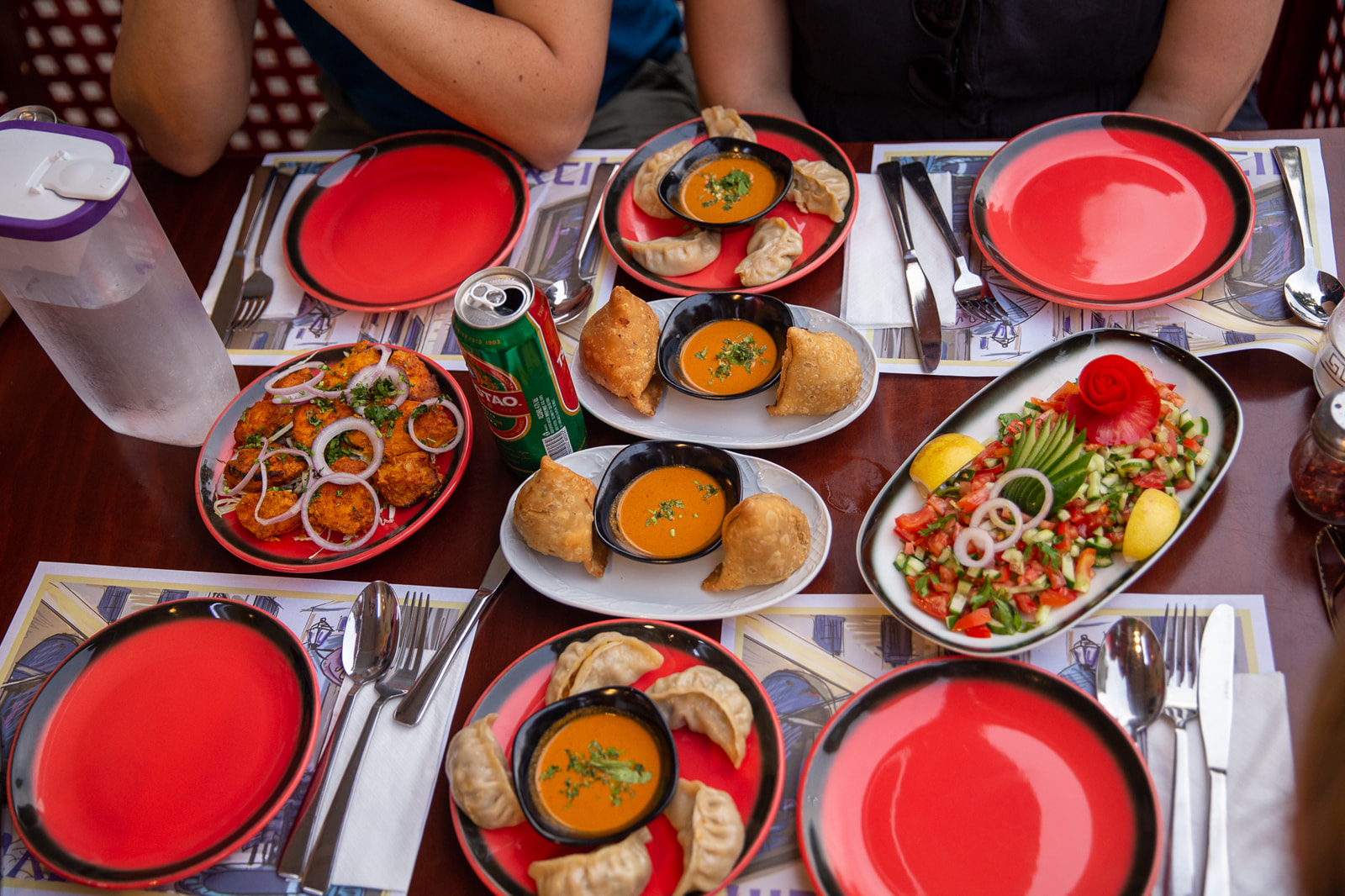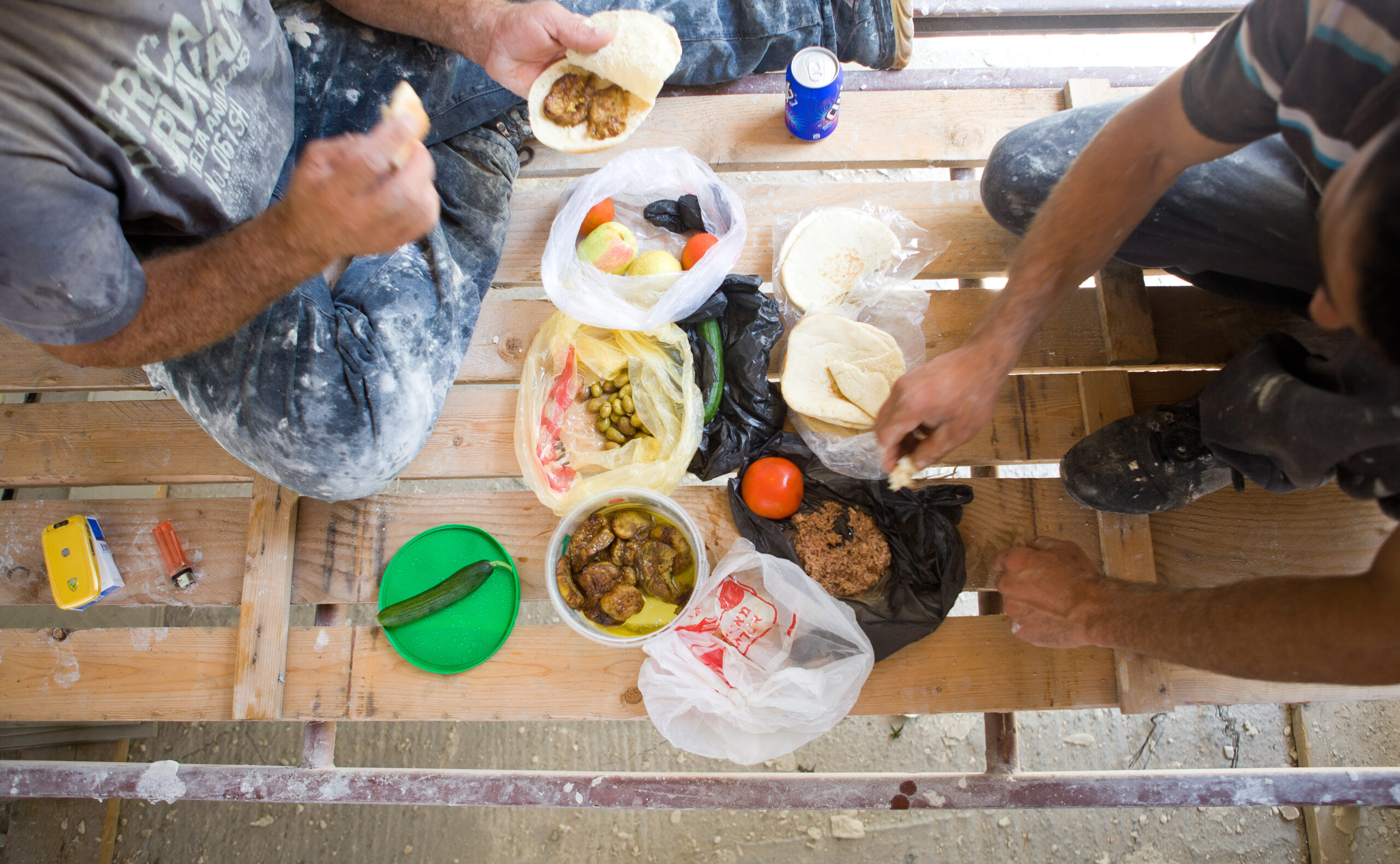As the sun sets, signaling the end of another day of fasting during Ramadan, the muezzin’s call echoes from the mosque in the Zubaydat neighborhood of the Bedouin Regional Council of Basmat Tab’un. With daylight saving time ending tomorrow, the days will get longer. In the local pastry shop, Lutfi Zayud, a jovial baker, busily rolls his poppy cakes. Meanwhile, the women of the family hustle between a pot of frying oil for qatayef and attending to the customers lining up at the storefront for sweets like awameh — fried balls soaked in honey syrup and rose water — and zarad, or festive cookies filled with dates delicately spiced with anise and cardamom.
At the village entrance, we’re greeted by Salem Khalidi whose badge worn round his neck designates him as a licensed professional tour guide. “My grandfather and great-grandfather were trackers and shepherds, living a Bedouin lifestyle, roaming the hills around Mantekat Al-Gaba (now known as Alonim-Shfar’am hills),” shares Khalidi, who is known as Galilean Salem (Salem HaGilili). “Bedouin isn’t a religion — it’s a nomadic way of life, particularly associated with the desert, which stands in contrast to the falahi agricultural lifestyle.”
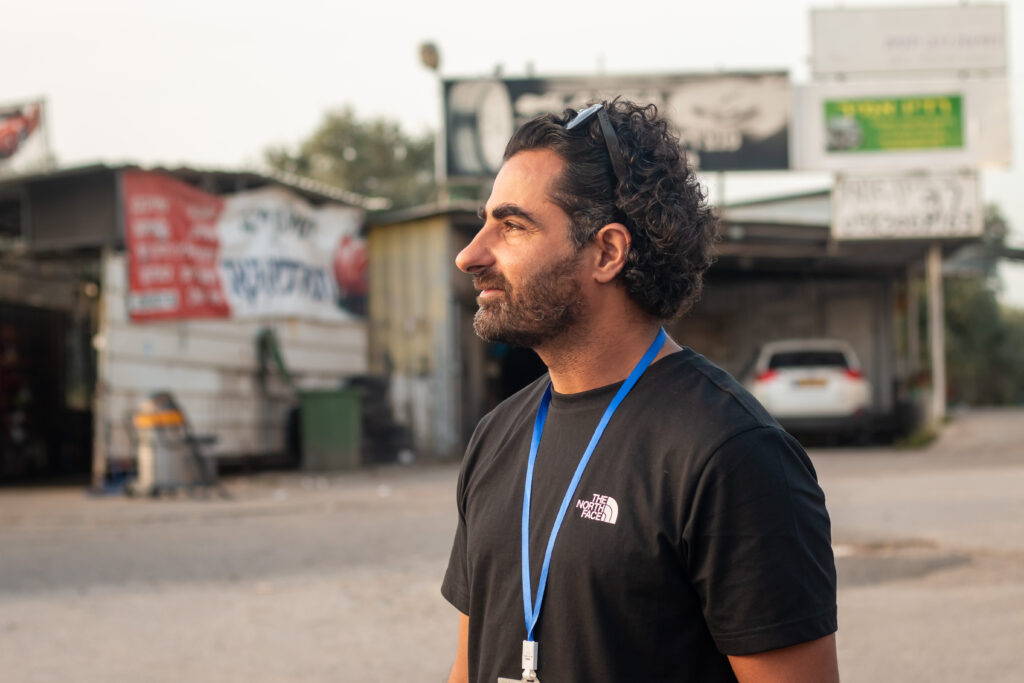
Khalidi fondly recalls his childhood as a time of transition, where traditional ways coexisted with modernization. “My father was part falahi, part Bedouin, and as for me? I came out Ashkenazi,” he chuckles. His father juggled construction and contract jobs, which enabled him to build a stone house and raise 12 children, while also tending to their family plots that yielded olives, wheat, barley, molokhia, and sesame seeds. “I remember us milking the goats, warming the milk, and adding it to our tea. We’d sow sesame seeds for za’atar in early April and eagerly anticipate the harvest. After spreading plastic sheets and turning it over, we’d lightly pound the sesame pods to crack them open,” he shares
The Bedouin Ramadan Nights in the Galilee tour — which is offered as part of the Marching on Their Stomach project — was started by Khalidi during the Covid pandemic. Motivated by a desire to showcase Islamic culture, especially Bedouin culture, to diverse audiences in Israeli society, Khalidi aims to dispel stereotypes. “I want people to learn that Bedouins are not just a camel and a tent,” he says. His decision to become a tour guide followed the tragic death of his father in a tractor accident, leading him to embrace his complex identity. Since then, the annual tour offers a glimpse into the Ramadan culture of Bedouin society in the Galilee, providing access to the region’s places, people, and cuisine. Moreover, it sheds light on the fragmented identity of a traditional society in Israel that has rapidly transformed under state influences.
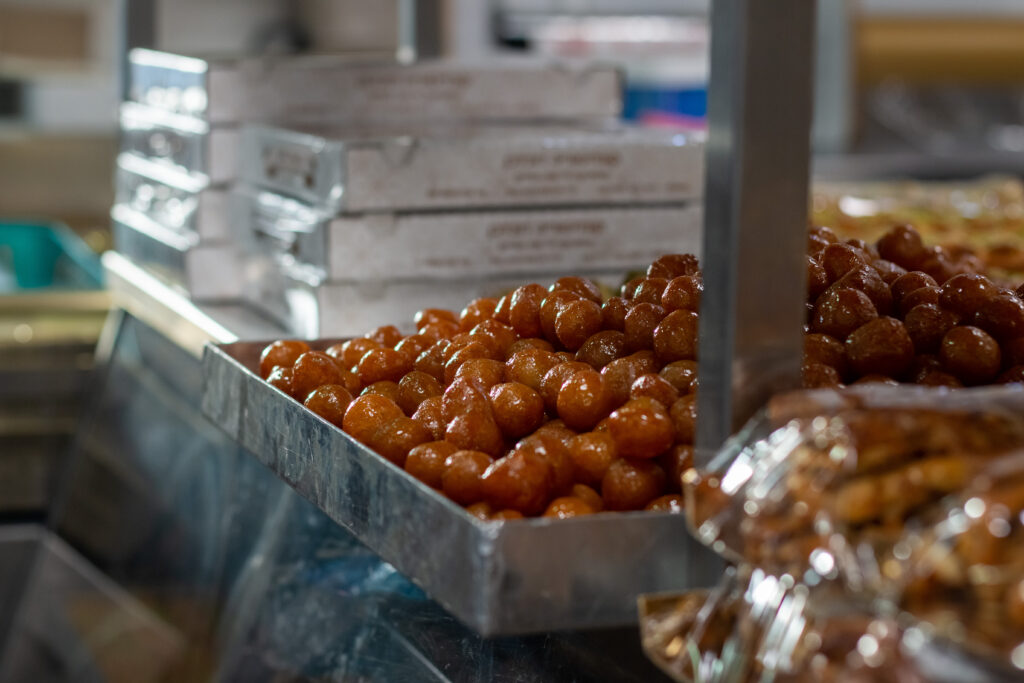
The origins of many Bedouins who settled in the Galilee trace back to Jordan, Iraq, and Syria. Settlement in the region intensified during the reign of Daher al-Omar in the 16th century, but migration continued for centuries. Bedouin wanderings were influenced by various factors, including conflicts as well as the search for pastures, water, and food. Initially, they inhabited areas in the north such as the Hula region, Beit She’an, and the Jezreel Valley. By the 1930s, some settled in permanent locations, although these settlements were not recognized by the nascent state of Israel. Today, approximately 100,000 Bedouins live in the Galilee, with another 300,000 in the Negev. Unlike Bedouins in the south, many of those in the Galilee were settled by the state in recognized villages in the 1960s.
“In the traditional Bedouin society of my grandfather and great-grandfather’s time, culture and livelihood revolved around tracking and shepherding. However, today, approximately 10,000 residents live in permanent homes in Basmat Tab’un and are integrated into Israel’s modern economic system, which is leading to significant changes,” explains Khalidi. “Over time, the income from shepherding sheep failed to keep up with the rising standard of living in permanent settlements, leading many to seek employment in kibbutz and moshav factories, construction, and other professions offering better economic prospects. Today, out of hundreds of doctors, pharmacists, and lawyers in the area, there may be one shepherd who does this for a living.”

The imam of the mosque, Muhammad Zubaydat, greets us warmly. In the Israeli reality, the spiritual leader has to work in construction to support his family. The sweetness of the dates that he shares can only be tasted after the sun has set. After we put on our shoes outside, Khalidi reviews the five pillars of Israel: Shahada (faith) — the belief in one God; Salah (prayer) — the commandment to pray five times a day; Zakat (Almsgiving); Sawm (fasting) and Hajj (pilgrimage) to the city of Mecca.
In his home, situated opposite an aged sign that once directed travelers to the village of Khawaled, Salem Khalidi hosts private gatherings and dinners. In 1997, the inhabitants of the village — members of the Khalidi tribe — were displaced and resettled in Basmat Tab’un alongside other Bedouin tribes from the region. Khalidi’s father, Khaled Khalidi Abu Ataf, succeeded in establishing the family residence, Izbat Abu Ataf, as an independent stand-alone dwelling following protracted legal proceedings. The pastoral home, overlooking the monks’ mill that operated in the vicinity until the early 20th century, serves as a haven for bikers seeking a spot to pitch a tent, groups and individuals seeking rustic hospitality. Khalidi’s family can also host events for up to 150 people. “A year ago, we held the Passover seder on one side of the compound, and on the other side – an iftar meal was held,” he explains.
We arrive at the house after dark, navigating the unpaved road that winds through wheat fields, orchards, and olive groves lining the banks of the Tzipori River. Our progress slows due to a line of parked cars along the path, leading to a brightly lit spot where music is playing. Khalidi explains, “In the past, the estate served as a temporary encampment for Bedouin shepherds during grazing or farming activities. During the olive harvest, for instance, they would settle here, even spending nights to carry out their work before returning to their families.” Khalidi and his tour partner, Itzik Litani, who shares Khalidi’s commitment to fostering intercultural understanding through their tours, introduce us to the estate as one designed for Iftar celebrations. However, Khalidi further describes his family’s place as a testament to ongoing modernization processes, noting, “Today, most of the manors are constructed from concrete blocks and are thought of as a guest house.”

On the upper floor of the house, two connected tables display an array of iftar dishes meticulously prepared by Khalidi’s wife Rana Khalidi. The artfully arranged spread features plates of olives and pickles, chopped salads, lentil soup, molokhia soup, and cabbage and carrot salads seasoned with dill and harissa. There was also maqluba, a traditional dish of vegetables and chicken mixed with the spice blend baharat , and freekeh with toasted noodles and browned almonds. Deep bowls of goulash also managed to sneak their way onto the table. Rana, a skilled and seasoned cook who also works as a kindergarten teacher, graciously lends her support to her partner’s Ramadan tours.
As the evening winds down and guests transition from the dining table to the living room of the Khalidi family’s stone estate, signs of fatigue and contentment appear on their faces. Eagerly anticipating cups of coffee and tea, they also look forward to qatayef stuffed with jibneh cheese and walnuts. Against the backdrop of photos depicting his father and grandfather, Khalidi captivates his audience with stories, and says he hopes to continue to bring people together within Israeli society. With personal charm, wisdom, and, of course, delicious food, Khalidi forges connections between his guests and his proud Bedouin identity, offering hope for greater unity.
Learn more about Salem Khalidi’s tours here and at 052-325-5918.
Sign up for Itzik’s Tour as part of Asif’s “Marching on their Stomach” project.
